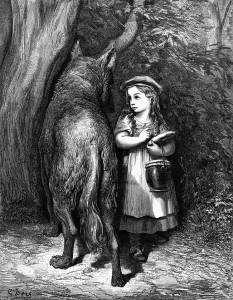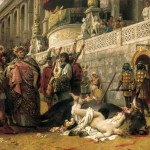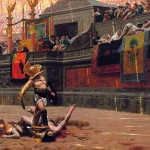There was a great article that came out today about Fairy Tales.
It starts out like so:
Stories evolve. As they are told and retold to new audiences, they accumulate changes in plot, characters, and settings. They behave a lot like living organisms, which build up mutations in the genes that they pass to successive generations.
This is more than a metaphor. It means that scientists can reconstruct the relationships between versions of a story using the same tools that evolutionary biologists use to study species. They can compare different versions of the same tale and draw family trees—phylogenies—that unite them. They can even reconstruct the last common ancestor of a group of stories.
The article goes on to talk about how some of the fairytales we have go back quite a bit. Variants can be traced back, across civilizations and cultures.
They’re not quite tales as old as time, but perhaps as old as wheels and writing.
Looking at this beyond the historical amusement it might be. This may change, or renew, rather the way we look at stories in general.

I would argue that stories possess a unique place in our life. Besides entertaining us and passing the time, they are used as methods of lessons and ways of teaching us values. We don’t always know What Christ would do in a scenario, but we often encounter within the Gospel, a parable that seems to point us in a somewhat right direction.
Tolkien seemed to feel the same way, cause he once said to C.S. Lewis while arguing the importance of myth:
“We have come from God, and inevitably the myths woven by us, though they contain error, will also reflect a splintered fragment of the true light, the eternal truth that is with God. Indeed only by myth-making, only by becoming ‘sub-creator’ and inventing stories, can Man aspire to the state of perfection that he knew before the Fall. Our myths may be misguided, but they steer however shakily towards the true harbour, while materialistic ‘progress’ leads only to a yawning abyss and the Iron Crown of the power of evil.”
― J.R.R. Tolkien
Why does this matter? You might ask, yes I realize stories have powers and I too can quote authors and articles that verify that point. The argument I am trying to make beyond the idea that stories matter and that they have been with us a long while. Is perhaps, sometimes we take it for granted and allow ourselves to grow tired or merely watch something of dubious value. The next time you find yourself doing that, perhaps you should read a bit more into it and figure what there is to be learned, if anything, from the story. And if you can find nothing, perhaps ask why. There is probably a lesson to be learned in that as well.
Image used is public domain / Wikimedia Commons.











